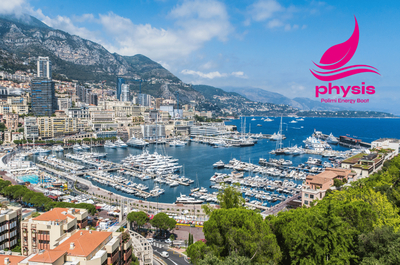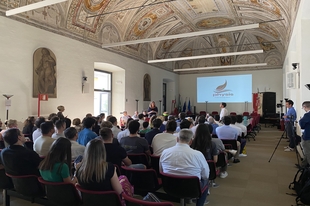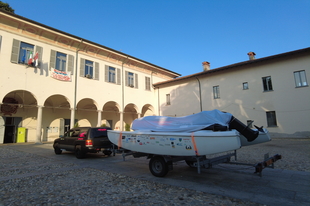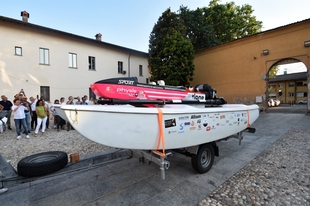
The prototype IONE 2.0., presented during an event on June 26th attended also by sponsors and team members, will join the annual competition Monaco Energy Boat Challenge at the Yacht Club of Monte Carlo that will take place from the 3rd to the 8th of July. This competition, at its 10th edition, encourages universities and companies from around the world to design and build a zero-emission racing catamaran, promoting all forms of innovation and making the world of boating more sustainable.
The final ranking takes into account three different races: the "Endurance race," the "Slalom race," and the "Championship race."
During the team's first participation in 2022, the students managed to build a catamaran in just 8 months of work that amazed everyone and outperformed the competition, securing the third place on the podium. Additionally, Physis returns home with one of the most significant and coveted prizes of the competition, the Eco Conception Prize, awarded to the most eco-friendly boat.
This year, the number of the team members rose to 85 students. IONE 2.0 differs from the previous boat because the implementation of a fuel cell combined with lithium-ion batteries are to power the catamaran. The hydrogen used will be entirely green, thanks to the design and construction of a charging station that will use solar panels, an electrolyzer, and a 300-bar compressor. A homemade hydrogen recirculation system has also been implemented in the fuel cell to avoid waste and increase system efficiency.
A new configuration will enhance maneuverability by lowering the cockpit and moving the engine backward. The engine itself has undergone a significant upgrade, increasing its power from 12 to 20 kW.
Extensive research has also been conducted on materials. The use of FDM 3D printing, already widely utilized in the first year, has been optimized by implementing new technical materials, such as a Polymide 5-10 derived from castor oil and a 100% recycled PETg, both reinforced with 10% recycled carbon fibers. These materials have significantly improved component performance while maintaining a minimal environmental impact.
This project highlights an uncommon desire to learn and challenge oneself by the team's students, who passionately combine their studies at the Politecnico di Milano with a project that allows them to apply what they have learned in class and engage with the business world. They uphold their ideals and satisfy their constant desire to increase their knowledge, skills, and, above all, personal growth.
All the work, updates, and races can be followed on our website or social profiles: Instagram and LinkedIn.



